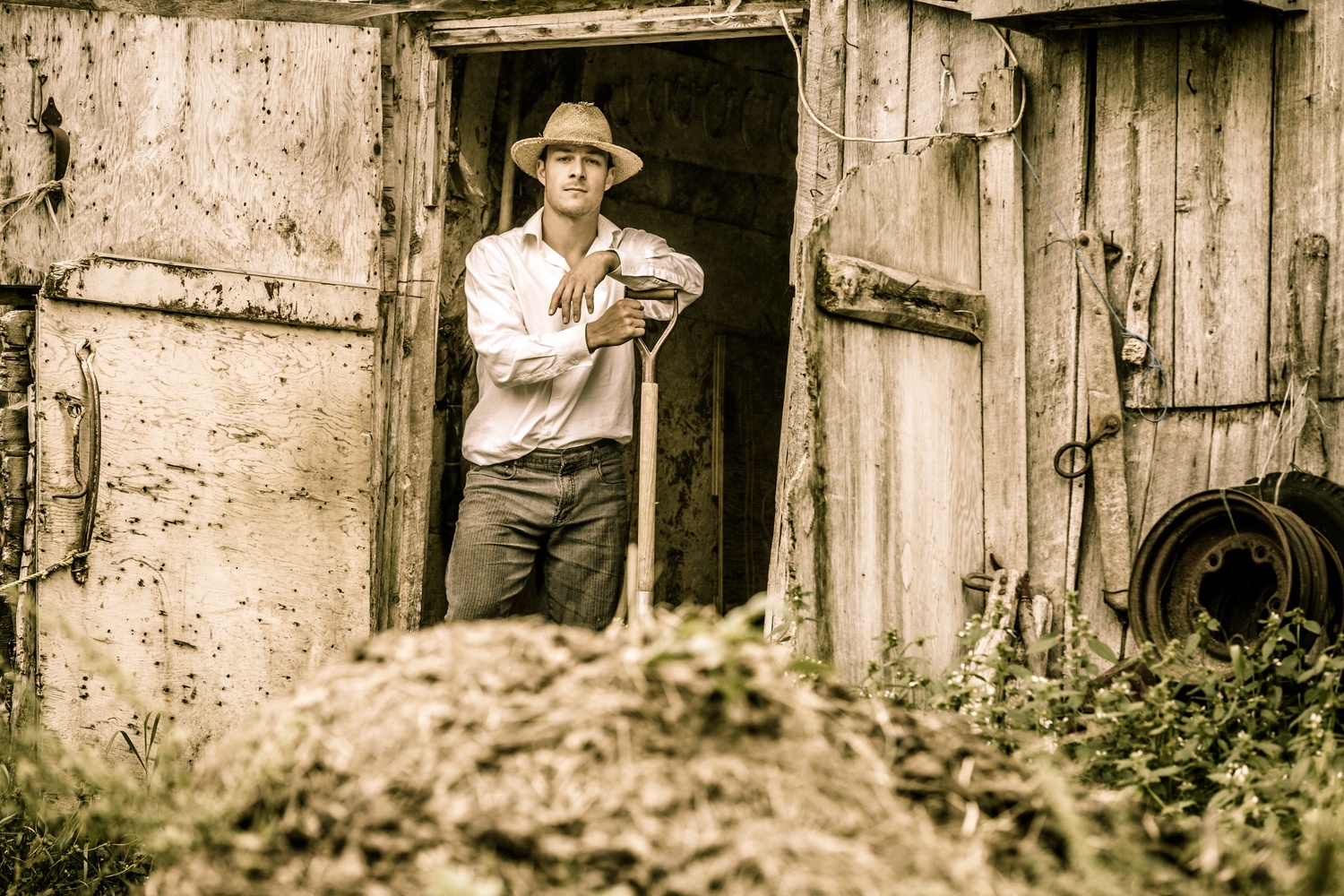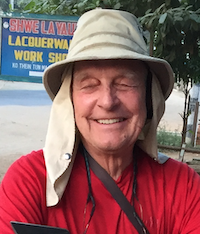About Scott INTRO to BIOs
"Autobiographies are when you put down the good things you ought to have done, and leave out the bad ones you did."
Will Rodger, 1930s era comedian
Table of Contents
quick links to Scott's Bio sections
I. Benchmark Boundary concept:
Synopsis of Benchmark Boundary
II. Biography INTRODUCTION:
A. Why read ANY biography?
B. Why read Travel BIOs?
C. Why try to plan your life?
D. Why I wrote my BIO for me?
E. Why I wrote my BIO for you?
III. About Scott's Decades: 1>>8:
A. Pre-teens:
B.Teens:
C. 20s
D. 30s.
E. 40s
F. 50s
G. 60s & 70s ***
H. 80s ***
II. Any BIOGRAPHY's Value
A. Why Read any BIO?
1) Deep dive my BIO's fundamental life choices; its twists & turns.
2) Evaluate my BIO's life choices & decision-making vs. what you might have done or might do differently.
3) Emotional struggles my BIO encountered & how I coped/resolved?
4) In the safety of your brain, vicariously test what your emotional responses might have been in similar circumstances.
What might you NOW do differently?
5) In the safety of your brain, privately compare & evaluate your own self-worth, confidence, courage, and initiative.
6) Does my BIO challenge any preconceived opinions or prejudices about your career, family, or worldview?
Anything worth exploring further?
7) Do BIOs inspire, redirect, or guide us to pursue our goals, experiences, accomplishments, and failures differently?
8) Can BIOs offer practical knowledge & solutions to life’s future issues?
Above, we dealt with the benefits of reading biographies in general; NOW, let's focus on the benefits of reading travel bios in particular
B. Why read Travel Bios?:
Above, we discussed how you might generally benefit from someone’s biography. Now let's focus on the specific value of travel bios to you in determining if, when and how you might want foreign travel.
Historically famous travel bios are of the explorers & adventurers: Marco Polo, Zheng He, Richard Burton, Columbus, Xuanzang, Lewis & Clark, Ibn Battuta, Dr David Livingstone, Faxian, Zhang Qian, and the Antarctic Explorers Wow, what lives they lived!!!

Current travelers’ bios could be numerous, loaded with experiences, itineraries & fulfillment, and pleasure. But alas, most ordinary travelers’ bios will never be written, perhaps because they don’t write or are too busy traveling & just living their lives.
The few that are written are often by travel bloggers. These online BIOs are usually very short, perhaps because the blogger believes you are vicariously visiting their site for the blogger’s up-to-the-moment thrills - not the past they escaped from.
While I offer a succinct bio on my Home page I also give you a Full Bio here with relevant questions that help you understand & evaluate my life and then compare it to how you might want to live yours.
Questions you might want to ask yourself at each stage of your life. Questions that might help you anticipate & plan your own life, particularly your travel ambitions, if you have any, at this point.
C. Why try to plan your life???
Quote: “I wish I dared to live a life true to myself, not a life others expected of me.” Bronny Ware, Australian author, songwriter & motivational speaker, aka "deathbed regrets" writings.
Why try to ‘design’ or control your life’s path? Why ‘plan’ life? 
9 Life Lessons - Tim Minchin UWA Address (comedy, but wise). https://www.youtube.com/watch?v=yoEezZD71sc
We read books & watch movies without knowing how each character will end up. Why not do the same for ourselves? Why not just let it unfold naturally? You know, ‘Go with the flow.’
At 85, I can’t change my past. You, OTOH, have almost complete control over how you might want to try to plan/design the rest of your life.
Why do we plan/consider anything?
Why plan a night out, college & career, spouse & children, or foreign travel if not to attempt to anticipate & plan a successful future? To try to maximize the pleasure and benefit of this short time span called life.
Anecdote: Foreign Travel Itineraries: When I first started foreign travel 25 years ago, I made a simple computer list of countries, cities, sites & experiences that I wanted to visit, including simple transport, hostels. & site notes.
Winging it from there.
Over several trips, I realized I had wasted a lot of travel time researching & flailing about, lost ... trying to find sites. Even worse, later I learned I had missed many sites I would like to have seen, but never would because I failed pre-trip research AND had too little time & too many places yet to visit.
Within 3 to 5 years, I began developing highly detailed itineraries, including all transport, a prioritized hostel list for each town, each site's details, & miscellaneous relevant notes. [pplk: Resources: Itineraries]
Anecdote: Mounds Culture self-guided van tour: I researched & planned a 1 month+ itinerary that included dozens of ignored & well-known Mound People's sites, Civil War Battlefields & preserved Civil War era plantation homes generally along the Mississippi River Basin.
In SUM, I estimate I researched 1 month for every month I traveled.
Some might consider this obsessive, yet it made my trips predictable & fluid without wasting valuable travel time researching on the run while trying to travel.
Flexibility was built in: my itineraries also included 1 free day for every 7 travel days AND each site visit's time on site was generously over-estimated.
Anecdote: Tangiers, Morocco: after 36 days trekking Camino de Santiago in northern Spain, I began 1½ month's travel thru Portugal & S Spain. In Madrid, I realized I was too far ahead of my itinerary, so I booked a train to Tarifa, SW Spain & ferried over to Tangiers, Morocco, for 3 days, then returned to Madrid to continue my travels ... & I still saw & did everything in Portugal & Spain I pre-planned.
NOTE: Post-Tangiers email to Debbie. LINK
I often estimated at the end of each trip that I had completed 95% or more of everything I wanted to see. Still, despite my extensive pre-trip itinerary, I kept discovering in the media ... sites and experiences I never knew about and would've wanted to visit and could have.
Anecdote: Peru Nazca figures: Just recently, I learned about dozens, if not hundreds, of additional figures recently discovered at the Nazca Lines site. Moments ago, I Grok'd to see impressive sites. Oh well.
Most lives are a mix of successes & failures: foreseeable/unforeseen, permanent/recoverable, good/bad, easy/challenging. Success is never guaranteed; multiple failed attempts are most probable.
Yet, constantly anticipating & planning your life’s choices is the most likely way to achieve success during your life and a sense of fulfillment & satisfaction at its end…a life that will satisfy you when you are looking back at my age.
There are no guarantees, of course, but the more we contemplate a future, plan & try to direct our plan, the higher the probability that more successes than failures will be produced ..... a ‘life well lived.”
Benchmark Boundary synopsis, FYI
Life Stages:
Most humans go through what some psychologists call 'life stages.' Most commonly, they are youths (1 to 10), teens (12 to 18), young adults (19 to 23), middle-aged adults & e) older (65+).
teens (12 to 18), young adults (19 to 23), middle-aged adults & e) older (65+).
In our pre-teen & teen stages, our life is mainly controlled by others -- parents, neighbors, Boy Scouts, teachers, and peers-- until we, somewhat belligerently in our early teens, begin to demand our own decision-making rights.
Yet, these ‘controlled’ years can dramatically influence & dictate our perception of ourselves and our future.
After 18, we may legally take control, except that others may also influence how we think and what we do.
The novel & movie characters, as well as many humans around us, are products of their good & bad decisions & people who influenced them.
Anecdote: 1 mo Mexican solo van-trip becomes 3 months: Fearing Mexico travel for years, I begin a 1 mo solo independent van tour on a big loop from Agua Prieta to Chihuahua, west to Gulf of California, south a bit, then, due east to Mexico City and back to US.
But, alas, parked on tiny San Francisco village’s ocean-side beach 30 miles north of Puerto Vallarta, luxuriating in the balmy solitude of my little RV Van far from MY America, I heard a deep American voice from behind my van say, "What part of Wyoming are you from?” … and I thought I had escaped …. 😀
Evan Lane, an American & a most accomplished SIT traveler, spent weeks each year in San Francisco with friends. That night’s dinner with his friends, just before I would turn east to Mexico City, he challenged me to “just keep driving south thru Guatemala, Belize, into Yucatán, Mexico.”
Early next morning, I arrived at ‘the’ intersection, thought of his challenge, looked briefly east toward Mexico City… then pushed straight through a stop sign driving south for 3 months along Mexico’s Coast, through Guatemala & Belize into southern Mexico’s Yucatan & back to USA’s Texas.
Often, decisions are made in the heat of emotion (marry an alcoholic?), panic, or convenience or occasionally, those that are well thought out.
Critically, our earliest decisions & experiences, planned or not, may strongly determine our life’s path. Consider the ‘life-impact’ of a good/bad parent, or being High School President, Eagle Boy Scout, or straight A’s sciences student, rebuilding an entire auto engine yourself, raising your siblings in a motherless home, a high school pregnancy, or forever ‘student loan’ debt?
The 'lucky' who always knew their path - horse trainers, doctors, etc. - compared with those of us who struggled to fulfill survival’s immediate needs — food, clothing & a place to sleep, etc.
Planning life is not an unrealistic option. Yet the apparent failure of many to do so lies all around us: lives un-directed, misdirected, hollow & UN-fulfilling.
Many, if not most of us are not fortunate enough to have had a future vision. My only goal out of college was to survive, eat, drink, and sleep.
Life is a one-shot deal, no sequel, no second chance, no reincarnation. “You get what you got, nothing more.”
Like a cereal bowl, we can fill it up with cow manure or chocolate syrup-covered chocolate ice cream. Each life has the potential to be a mix of manure or chocolate ice cream.
Pondering & planning your life’s choices, including travel, is the only way you are likely to  achieve success & satisfaction at the end of your life;
achieve success & satisfaction at the end of your life;
…a life that will please you the most when you are looking back at my age.
Remember that your life may be similar to others, but it is also unique compared to others; as fulfilling as you make it. .....
Benchmark Boundary synopsis, FYI
D. Why I wrote my bio for me?
1. To flatter my ego? Why, who would really care? Few have cared before. I am not crying, just sayin’.😇
Quote: When you put down the good things you ought to have done, and leave out the bad ones you did do, well, that's Memoirs. Will Rodgers (19th C comedian)
2. To relive & enjoy my travels by editing my 25+ years of videos.
I made my life’s choices over 5-6 decades. I have done all the traveling I can do (cancer). I don’t intend to monetize my blog through sponsors & advertisers because I don’t need the money.
“You only need to get rich once.” Jim Cramer, stock guru. I did."
3. To give my YouTube channel viewers an insight into the motivations of my more than 1400 short videos from all over the world.
E. Why for you?
My current goal for you is twofold:
1) sharing my travel knowledge & experiences through my blog
& YouTube videos,
2) providing those who may not or can not travel with an
vicarious, but authentic travel experience through my website
& YouTube Channel.
Anecdote; Bill Haine's 'armchair' travel: Years ago I would edit a trip video & copy it to a DVD for my friend Bill because he once said, "I love your videos, Scott because they are only way I will ever travel abroad."
E. Why did I write my bio for you?
 1. To give you the license to explore my intimate thoughts, experiences, failures & successes & opportunities of my life in case they can help you better understand your past, and anticipate your future, particularly regarding free independent travel.
1. To give you the license to explore my intimate thoughts, experiences, failures & successes & opportunities of my life in case they can help you better understand your past, and anticipate your future, particularly regarding free independent travel.
You’ll see my challenges, successes, failures, catastrophes & outcomes.
Looking back from my 60 & 70s obsession with travel, why didn't I START free independent foreign traveling 20 years earlier?
2. My BIO may prompt you to evaluate MY fundamental life choices & the questions I did, did not, or should have asked myself.
Anecdote: Menial 'bachelor degree' jobs:
1st job: I kept selling Cutco knives door-to-door, sleeping
on the office floor, but income was too unpredictable.
2nd Job: In a doughnut shop, making early morning doughnuts
& delivering them. Again, sleeping on the storeroom floor.
I had ABSOLUTLY NO CLUE what jobs might follow college.
3. Probe MY life’s reasoning, emotions, and levels of confidence & self-worth during my life’s stages.
4. Now, in the safety & privacy of your mind evaluate & test what your emotions, self-worth, confidence, emotional courage, initiative & issue solutions & limits might have been (or will be) in similar circumstances.
What might you have done better or differently?
You may be alarmed at my complete ignorance of what my goals after college would be.
What value was all that 'education'? I had 'no clue!!'
5) These deeper insights may prompt or inspire a new vision for the 'balance of your life.' What will it be like?
At 84, I can’t alter my past. But you have almost complete control over how you might want to try to plan/design the rest of your life.
If you always wanted to be a Doctor, you already know the route. BUT, what if you have no idea what you want out of life?
Most default to marriage & children, BUT, 'Why?' ... AND .... before or after college or career's stability?
6) Should you try to plan your life to some degree?
Why else do we go to college, focus on a career, and develop sports or hobby skills, if not to somehow foresee & plan our future.
At 60 I didn't really plan to spend the next two decades obsessively traveling. BUT once I started doing 1 trip/year & then 2/year and ... making them longer ... I was obsessed with the countries I STILL wanted to 'see.'
Benchmark Boundary synopsis, FYI
It all started innocently enough at 3 or 4?


Manure
OR
chocolate ice cream




Wings & Anchors
& a few 'life' questions
To evaluate our questions & answers, we'll often presume some basic positive factors (Wings) and negative factors (Anchors).
These Wings & Anchors will frame our discussions.
Wings: are the personal attributes that most of us inherently have. 'Wings' will focus on our levels of positive basic human traits that influence our lives.
For example: we are born with unbridled curiosity, an absence of human prejudices, & a 'thinking' brain that naturally seeks useful knowledge & experiences.
OTOH -----
Anchors: are negative 'baggage' factors that we accumularte once out of the womb. Often, at each age the intensity level of the "Anchors' varies. Identifying these 'Anchors' allows us to combat their negative effects.
For example, intellectual curioisty, creativity, imagination, etc. are suppressed by the public school system by about the 4th grade. (Ken Robinson, TED Talks videos on Youtube.): https://www.youtube.com/watch?v=wX78iKhInsc&t=514s
Recognizing that most of public school's regimented memorization & destructive testing is a fraud may help you restore your damaged self-worth.
Recognizing that a university's diploma value may be a delusion may 1) prompt exploration of trade careers, 2) save you many $10,000s of life crippling student loans, & 3) free you to consider other, ignored, life choices
Install link to student loan page once that page is installed in resources
A few Life Questions: ... that I ask ... to prompt you:
1. Evaluate my life's decisons & effect - good or bad?
2. How you might have avoided my mistakes. if me?
3. How might you duplicate my good decisions?
4. How might you plan your life to maximize your success & minimize your mistakes knowing you will always make mistakes.
Biref Overview
My BIO is that of an ordinary person flailing out-of-adolescence into the unknown torturous survival mode of the real world. Un-like the historic heroic BIOs above, my BIO is probably devoid of great drama. Yet, it is NOT totally ordinary.
Against a troubled youth: kicked out of grade school, high school, nevertheless punctuated by notable achievements in teens until flailing thru my 18 year old Benchmark Boundary & college to adulthood with no direction.
Ultimately, major successes & failures (USAFA & expulsion), corporate world submission and my ultimate rejection, ultimately crawling out of the corporate quagmire onto my own turf: real estate, laundromat, garage door business, lawyer & high school teacher. Yet, foolish stock risks & losses (½ mill $ ), hard-won financial recoveries, bold adventures (solo Chilkoot Trail trek into Yukon River kayak), and random unforeseen calamities.
It wasn’t all normal.
Deeper into Scott's Bios & Key Questions
Two suggestions:
1. About Scott's Decades: pe-teens thru 80s: you might compare my pre-teen & teen years to your own as springboards, or not, for the 'rest of your life.'
2. Review the "Benchmark Boundary" sections again, particularly as you read through your decade.
Subscribe!
Join my mailing list to get new content notifications.
